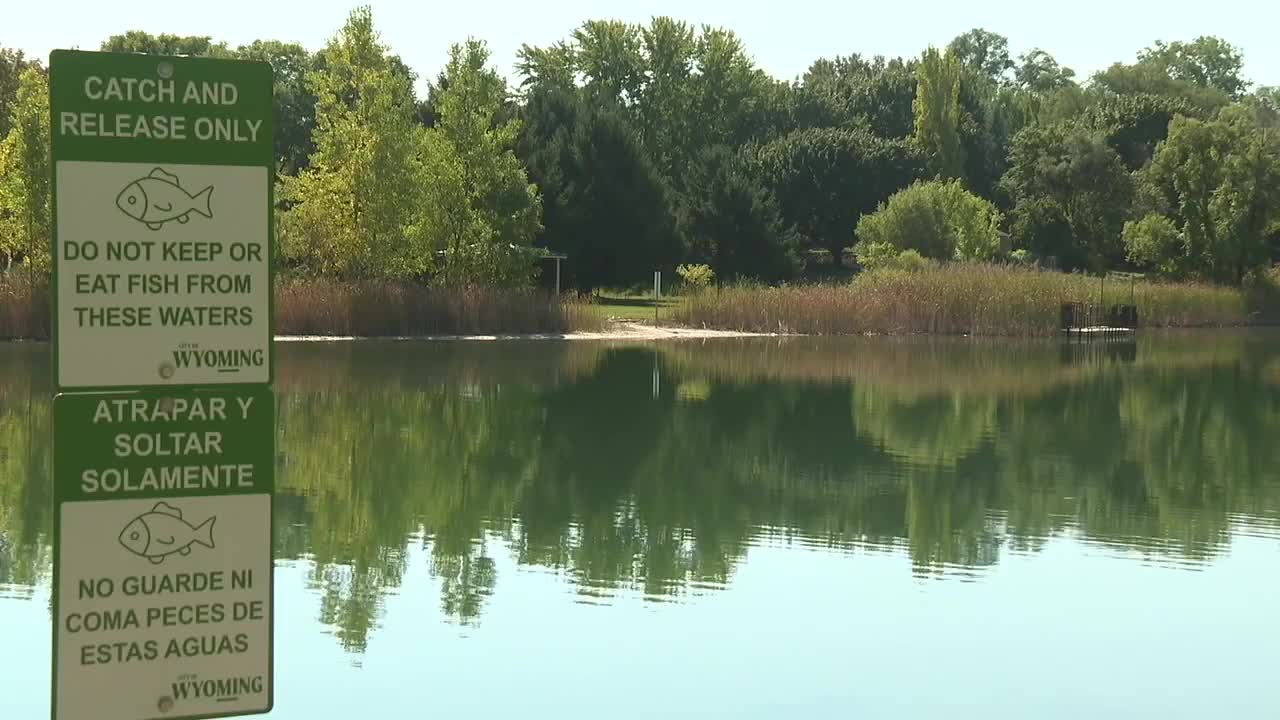WYOMING, Mich. — A new PFAS "area of interest" was identified in the Wyoming-Grandville-Kentwood neighborhoods earlier this month, prompting state and city leaders to hold a community meeting Wednesday night to address residents' concerns.
The Michigan Department of Environment, Great Lakes and Energy (EGLE) announced that bodies of water in Grandville, Kentwood and Wyoming were designated as an area of interest for elevated levels of PFAS after fish testing revealed contamination levels worse than anticipated.
WATCH: Environmental agencies host public meeting on PFAS in Wyoming
"We had some inkling of it from testing that we'd done on waters, surface waters, ditches and things in the area. But now that we've done the fish testing, we found out, yes, we have a bigger problem," Mike Jury with EGLE said.
The data from the Chicago Drive and Lee Street area exceeded expectations, and the contaminated area may expand as additional water samples are analyzed.
"It may grow bigger yet as we've taken more samples from additional water bodies in the area. And if those come back with PFAS in those fish, then obviously the problem is bigger," Jury said.
EGLE hosted the town hall meeting to hear from affected residents like the Saunders family, who expressed concerns about water safety.
"We're concerned of how bad it is, if it's we can swim in it, can we not eat or eat the fish, and mostly just the degree of seriousness?" the Saunders said.
The family uses the lake frequently with their children and wanted to ensure they had accurate safety information.
"We use it probably more than a lot of people with kids jumping off the docks and stuff and, yeah, we're just trying to make sure that we have our information correct and that everyone's safe," Saunders said.
City drinking water remains safe since the affected area is connected through the municipal water system. However, residents with private water wells may face contamination risks.
"There might be a problem with a residential drinking water well. We don't know, but that's why we'd like to test it. Want everybody to be safe," Jury said.
Fish consumption poses the primary health concern in the contaminated waters.
"Those fish that we took from those ponds had PFAS levels above what we consider to be safe for human consumption. So, we want to let people know about that," Jury said.
Eating fish from high PFAS areas can increase negative health outcomes, including an increased risk of certain cancers, according to EGLE.
Without knowing the contamination source, EGLE is asking residents to provide historical information about potential dumping or industrial accidents in the area.
"If somebody's aware of dumping that took place back, quote, unquote, back in the day, some significant dumping, or some type of industrial accident, things of that, those are things that we would really like to know," Jury said.
Next steps include testing potential PFAS sources in the area and analyzing data already collected from the affected bodies of water, tp see if any correlation exists.
"This story was reported on-air by a journalist and has been converted to this platform with the assistance of AI. Our editorial team verifies all reporting on all platforms for fairness and accuracy."






